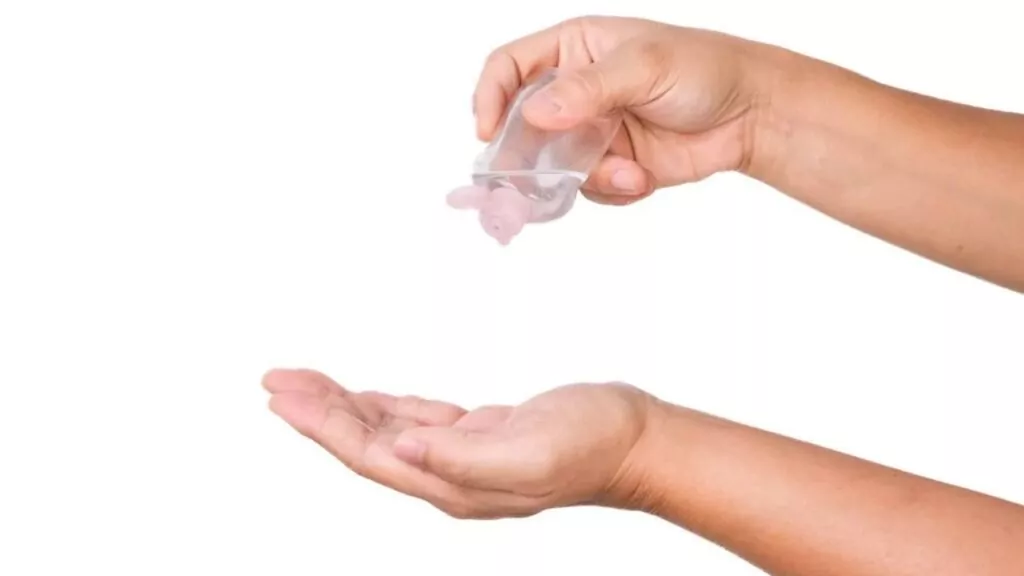In the world of personal pleasure and intimate moments, finding the right kind of lubricant can make a big difference. Perhaps you’ve wondered if baby oil, with its smooth and silky texture, could be the solution.
Despite its tempting softness, it’s essential to know that baby oil isn’t safe for this use.
Did you know baby oil often has ingredients like petroleum? This means it can create problems if used during private activities. In our guide, we’ll show why it’s not a good choice and provide safer alternatives that ensure both pleasure and health are in harmony.
Our aim is to offer simple solutions that keep your intimate times safe and enjoyable.
Ready for some eye-opening insights? Keep reading!
Understanding Baby Oil
Baby oil is a clear, slick liquid we often use to make skin soft. It’s made from mineral oils and has a fragrance added to it. People like how gentle it feels on the skin. This makes it popular for skincare routines, especially after showers or baths.
But when we talk about using baby oil as a personal lubricant for activities like self-pleasure, vaginal intercourse, or anal play, there are things to think about. Despite its smoothness and ability to reduce friction, the creation of baby oil did not prioritize sexual health.
Read More: Sexual Frustration in Men
It can mess with the natural balance inside vaginas and anuses. This might lead to discomfort or infections. Also, it can break down products meant for protection during sex, such as latex barriers found in condoms and diaphragms, making them less effective at preventing STDs and pregnancy.
Potential Risks of Using Baby Oil as a Lube

Using baby oil as lube can seem like a good idea, but it comes with risks. It might cause skin irritation and raise the chance of getting infections down there.
Irritation to the Vulva
Baby oil might seem like a smooth choice for lubing up, but it can lead to trouble down south. It often causes irritation and swelling in the vulva area. This is no small issue—skin irritation here can really put a damper on your sexual pleasure and comfort.
This sort of discomfort isn’t just annoying; it raises your chances for yeast infections or bacterial vaginosis. The vulva’s sensitive skin doesn’t take well to baby oil. Instead of feeling good, you end up with redness, itchiness, and pain—not exactly what anyone wants from an intimate experience.
Stick to products made specifically as sexual lubricants to keep things safe and enjoyable down there.
Possibility of Vaginal Infection
Using baby oil as a lubricant can disrupt the natural balance in the vagina. This imbalance might lead to infections. Baby oil can trap bacteria, making it hard for the body to keep the vaginal area clean and healthy.
Choosing safer alternatives like water-based or silicone-based lubes helps protect against these risks. These options respect your body’s natural state and reduce the chances of upsetting its delicate environment.
Always pick lubes designed for safe sexual activity to keep your health in check.
Incompatibility with Diaphragms and Condoms
Baby oil can break down materials in diaphragms and condoms. This means they may not work as well to prevent pregnancy or stop STIs. The mineral oil in baby oil damages latex, the stuff most condoms are made of.
So, if you use baby oil for lubrication during sex, you could end up with a torn condom or a stretched diaphragm.
Using safer options like water-based lubes is smart for anyone relying on barrier methods like condoms or diaphragms for birth control or STI prevention. These products won’t harm your protection and will keep things safe and enjoyable.
Read Also: What Is Deepthroating?
Remember to check labels and pick a lube that’s compatible with whatever protection you choose to use.
Excessive Slipperiness
Using baby oil as lube might seem like a good idea at first. The problem is that it’s too slippery. This can lead to trouble holding on during intimate moments. Unexpectedly, the intended enhancement of pleasure turns into a risk for slips and mishaps.
This slickness isn’t just an issue in the heat of the moment—it also makes aftercare tough. Imagine trying to clean up but the oil just won’t wash off easily. It sticks around, making the skin feel greasy long after the fun has ended.
Plus, this extra slip could mean toys or protection devices don’t work as they should, putting you at greater risk of accidents or injury during sexual play.
Difficulty in Washing Off
Baby oil sticks to your skin longer than you might want after getting intimate. This implies that attempting to remove it in the shower requires more time and effort. Unlike water-based personal lubricants, which rinse off easily without much hassle, oil-based products like baby oil resist water and stick around.
Imagine trying to wash greasy dishes with just water; it doesn’t work so well, right? That’s what happens when you try to clean off baby oil—it clings.
This clinginess can lead to frustration, especially if you’re in a rush or tired. You might find yourself reaching for harsher cleansers to get rid of the oily residue, which isn’t great for sensitive areas.
Additionally, spending extra time in the shower scrubbing could aggravate your skin. It’s clear: choosing something that needs less effort to wash away makes life simpler and keeps your skin happier.
Potential Damage to Sex Toys
Oil-based lubricants like baby oil can break down materials in many adult toys. This causes them to deteriorate over time. Silicone, rubber, and plastic toys are especially at risk.
The damage makes these toys unsafe because they can harbor bacteria. This turns them into a health hazard for users.
Water-based and silicone-based lubes are better choices for use with playthings. They do not damage the materials used to make adult toys. Making smart choices about lubrication keeps your toys safe and extends their life span, ensuring maximum enjoyment and safety during intimate moments.
Safer Alternatives to Baby Oil for Sexual Lubrication
For a smooth experience without the risks, it’s best to choose water- or silicone-based products designed for intimacy. These options are gentle on the body and work well with condoms and toys, making sure you stay safe and enjoy every moment.
Dive into our collection to find your perfect match!
Water-based lubricants
Water-based lubricants are a popular choice for many reasons. They wash off easily and do not leave stains on clothes or sheets, making clean-up a breeze. This makes them ideal for those quick moments or when you don’t want to deal with a lengthy cleanup process afterward.
Plus, if you’re using condoms or other forms of barrier protection during sex, these lubes won’t cause any damage. Their compatibility with various contraception methods adds peace of mind.
Despite their benefits, water-based options tend to dry out faster than other types of lube. This means you might need to pause and reapply more often to keep things smooth and comfortable.
It’s a small trade-off for the ease of use and clean ingredients that are less likely to irritate sensitive skin areas or disrupt natural pH levels in the body, like vaginal flora. With brands like Astroglide offering specialized formulas, finding one that suits your needs is easier than ever.
Silicone-based lubricants
Silicone-based lubricants last a long time and are perfect for activities that take more than just a few minutes. You can use them in the shower or pool because they don’t easily wash off.
This type of lube won’t dry out fast so you can enjoy play without constant reapplication. It’s a good choice if water-based lubes tend to disappear too quickly for your liking.
These lubes do come with their own set of issues, though. They can ruin adult toys made from silicone. Also, they’re not easy to clean off your body or fabrics and might leave stains on bed sheets or clothing.
Despite being tough to wash away from surfaces, this quality means fewer interruptions during intimate moments, allowing for uninterrupted pleasure and comfort.
Oil-based lubricants
Oil-based lubricants work great for massages and longer-lasting intimate moments. They can keep things slick during vaginal and anal intercourse. But you should not use them with latex items like condoms or diaphragms.
These lubes can weaken latex, leading to breaks or tears. Make sure to verify the composition of your sexual wellness products before combining them with oil-based lubes.
Looking for a natural option? Natural ingredients like coconut oil or olive oil are the basis for many oil-based lubricants. They’re great for people who want products that feel more organic on their skin.
Remember, while these oils seem safe, always do a patch test first to avoid any allergic reactions. And knowing they’re tough to wash off might make you think twice about using them in certain situations.
Conclusion
Thinking about using baby oil for those intimate moments? Think again. Baby oil might seem like a smooth choice, but it’s far from the best option for your body or your bedroom.
From causing irritation to breaking down barriers against diseases, it’s clear this skin care product doesn’t belong in your private time. There are better alternatives out there: water-based gels, silicone slicks, and even some natural oils.
These choices keep things safe and enjoyable. So ditch the baby oil; safer and more satisfying options await you.




















